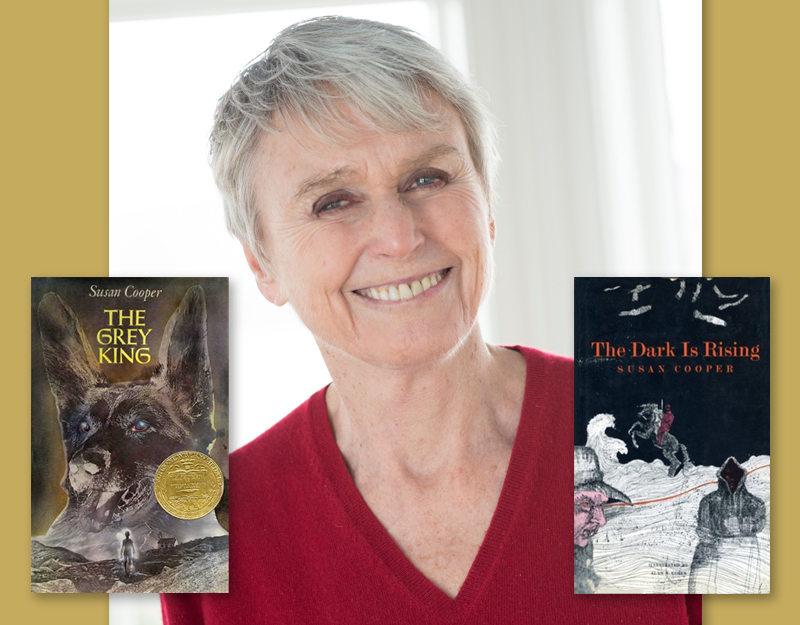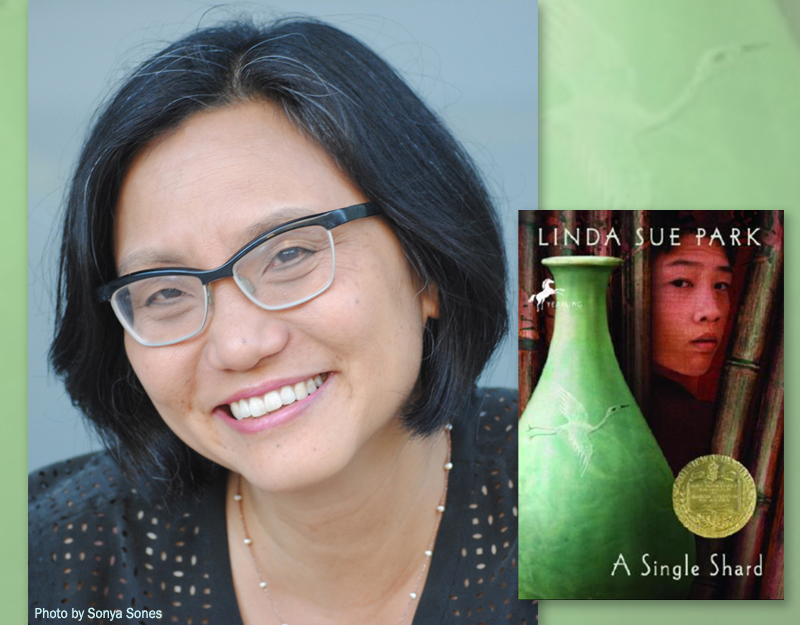It’s a Small World After All (The Prose Edition)
 Cynthia Kadohata won the National Book Award last year for THE THING ABOUT LUCK, and she follows that up with another strong book. Lightning didn’t strike twice, however. She doesn’t have the most memorable character of the year; that honor would go to Gregory Maguire for Baba Yaga in EGG & SPOON. But it’s still a strong novel. in HALF A WORLD AWAY, twelve-year-old Jaden was adopted from Romania, but he views himself as an epic fail for his adoptive parents, at least that’s how he rationalizes their decision to adopt a second child from Kazakhstan. Once they get there, however, they find that “their” baby has already been adopted, and they are left scrambling for an alternative. Jaden is curiously drawn to Dimash, a three-year-old who doesn’t speak yet; he will soon age out of the orphanage. This is just another wonderful piece of storytelling with strong, plot, characters, and setting.
Cynthia Kadohata won the National Book Award last year for THE THING ABOUT LUCK, and she follows that up with another strong book. Lightning didn’t strike twice, however. She doesn’t have the most memorable character of the year; that honor would go to Gregory Maguire for Baba Yaga in EGG & SPOON. But it’s still a strong novel. in HALF A WORLD AWAY, twelve-year-old Jaden was adopted from Romania, but he views himself as an epic fail for his adoptive parents, at least that’s how he rationalizes their decision to adopt a second child from Kazakhstan. Once they get there, however, they find that “their” baby has already been adopted, and they are left scrambling for an alternative. Jaden is curiously drawn to Dimash, a three-year-old who doesn’t speak yet; he will soon age out of the orphanage. This is just another wonderful piece of storytelling with strong, plot, characters, and setting.
 Aref, the young protagonist of Naomi Shihab Nye’s TURTLE OF OMAN, is sad to be leaving his home country of Oman for Ann Arbor, Michigan where his parents will be in graduate school for several years. His mother calls his grandfather to help him ease the transition, but rather than helping him pack they set off an a series of adventures around the country. This is a quiet story, but the writing is lyrical in typical Nye fashion. Another strong effort by a veteran writer. I hate to call this one a dark horse–it has three starred reviews–but it does seem like nobody is talking about this one (although a couple people did put it in their Top Five). It deserves a wider audience.
Aref, the young protagonist of Naomi Shihab Nye’s TURTLE OF OMAN, is sad to be leaving his home country of Oman for Ann Arbor, Michigan where his parents will be in graduate school for several years. His mother calls his grandfather to help him ease the transition, but rather than helping him pack they set off an a series of adventures around the country. This is a quiet story, but the writing is lyrical in typical Nye fashion. Another strong effort by a veteran writer. I hate to call this one a dark horse–it has three starred reviews–but it does seem like nobody is talking about this one (although a couple people did put it in their Top Five). It deserves a wider audience.
ADVERTISEMENT
ADVERTISEMENT
The last time we brought up this topic, it didn’t fare too well. All five of these titles offer children a broader perspective of our world. Of course, the Newbery process does not privilege certain agendas, but surely some of these may rise to the top regardless.
Filed under: Uncategorized
About Jonathan Hunt
Jonathan Hunt is the Coordinator of Library Media Services at the San Diego County Office of Education. He served on the 2006 Newbery committee, and has also judged the Caldecott Medal, the Printz Award, the Boston Globe-Horn Book Awards, and the Los Angeles Times Book Prize. You can reach him at hunt_yellow@yahoo.com
ADVERTISEMENT
ADVERTISEMENT
SLJ Blog Network
Name That LEGO Book Cover! (#53)
Cover Reveal and Q&A: The One and Only Googoosh with Azadeh Westergaard
Exclusive: Vol. 2 of The Weirn Books Is Coming in October | News
Fighting Public School Book Bans with the Civil Rights Act
Take Five: Middle Grade Anthologies and Short Story Collections
ADVERTISEMENT








Jonathan, by not faring well do you mean no comments? I was surprised myself not to hear anything at that earlier post from defenders of CAMINAR, since we’ve heard from them elsewhere. While I found some of the writing there beautiful, I felt it ultimately kept me at a distance.
I found Kadohata’s work particularly strong in voice, and am surprised we haven’t heard more about it. I think that many adults could be ultimately put off by the odd perspective, but I found it compelling. This is one of my current favorites, though I am an admitted Kadohata fan.
The one other I’d put up here for consideration is ARCADY’S GOAL by Eugene Yelchin, which bears startling similiarity to Kadohata’s story… an older boy’s adoption experience. The perspective is even the same very limited but insightful point of view. Another favorite, though perhaps another hard sell.
Yes, not much discussion of these titles. We got 32 comments on this post from a couple of years ago, in contrast.
https://blogs.slj.com/heavymedal/2011/10/09/girl-power-goes-global/
I just thought people would be more keen to discuss these titles in light of #WeNeedDiverseBooks and all. Happy to see people have posted below. And thanks for the tip on ARCADY’S GOAL. I missed that one.
I just made comments about Kadohata’s book under the Top Five post. Now I want to read ARCADY’S GOAL.
I would second ARCADY’S GOAL. Yelchin’s simple sentence structure mirrors the inexperience of Arcady’s character, but he is also able to communicate so much emotion through it as well. I have been a bit underwhelmed by much of this year’s crop. I just finished Yelchin’s novel and was “wowed” by it. This may be a hard sell in my library – I know BREAKING STALIN’S NOSE doesn’t fly off the shelf – but it is one of the few that I can promote with a lot of conviction.
Hope it’s okay to comment on CAMINAR so late and not exactly in the right place, but I was deeply affected by the book. I can see how some readers might feel a little distanced, but throughout I both saw and heard a boy whose known world came to an abrupt, brutal end and who, nevertheless, kept walking forward, taking his first steps into manhood. I think Skila Brown establishes and maintains plot momentum, something that doesn’t always happen in a verse novel. She also uses a variety of forms really effectively–I could feel Carlos’ s heart beating in some of those spaces. Also love the use of nature and want to believe in the hopeful epilogue. Really look forward to whatever she writes next.
I can’t cite specifics about the text of CAMINAR as I don’t have it in front of me. But I will say that Carlos and his story have stayed with me since I read it earlier in the year. I think it’s a fantastic presentation of a complex event that’s entirely appropriate for the intended audience. And while this has no bearing on the award discussion, I think it fills an important gap by introducing readers to an event not particularly well known and understood here in the US.
I sure did like HALF A WORLD AWAY, my main quibble was how info-dumpy it was at the beginning to establish character. I kept thinking it was written in first person. Jaden was so self-aware I found it off-putting. I feel the book would have been stronger if the character had shown us more of his relationship with his parents than told us all about it. I did adore the setting and one day wish to hunt with eagles on the plains of Kazakhstan.